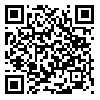مجله رویش روانشناسی از دادن گواهیهای کاغذی معذور است. لطفا تقاضا نکنید. همه گواهی ها در صفحه شخصی کاربران موجود است.
year 14, Issue 4 (sumer 2025 2025)
Rooyesh 2025, 14(4): 171-180 |
Back to browse issues page
Ethics code: IR.IAU.KHSH.REC.1403.313
Download citation:
BibTeX | RIS | EndNote | Medlars | ProCite | Reference Manager | RefWorks
Send citation to:



BibTeX | RIS | EndNote | Medlars | ProCite | Reference Manager | RefWorks
Send citation to:
Mazaheri N, Dayarian M M, Sharifi Esfahani M. (2025). Development and validation of a parenting empowerment training package based on the lived experience of mothers with a history of childhood abuse. Rooyesh. 14(4), 171-180.
URL: http://frooyesh.ir/article-1-6234-en.html
URL: http://frooyesh.ir/article-1-6234-en.html
1- Ph.D Candidate, Department of Counseling, Kho.C., Islamic Azad University, Khomeinishahr, Iran.
2- Department of Counseling, Kho.C., Islamic Azad University, Khomeinishahr, Iran. ,m.dayarian@iau.ac.ir
3- Department of Counseling, Kho.C., Islamic Azad University, Khomeinishahr, Iran.
2- Department of Counseling, Kho.C., Islamic Azad University, Khomeinishahr, Iran. ,
3- Department of Counseling, Kho.C., Islamic Azad University, Khomeinishahr, Iran.
Abstract: (567 Views)
This study aimed to develop and evaluate the feasibility of a parenting empowerment training package to enhance parenting self-efficacy among mothers with a history of childhood maltreatment. The study employed a quasi-experimental design with pretest-posttest and control groups, including a two-month follow-up. The population consisted of mothers with a history of childhood maltreatment who had children enrolled in elementary schools in Isfahan during the 2023–2024 academic year. Thirty mothers were purposively sampled and randomly assigned to experimental and control groups. The research instruments included the Parenting Self-Agency Measure (PSAM; Dumka et al., 1996) and the Childhood Trauma Questionnaire (CTQ; Bernstein et al., 2003). The experimental group received the parenting empowerment training package over ten 60-minute sessions, while the control group received no intervention until the end of the study. Data were analyzed using repeated measures ANOVA. Findings indicated that the training package significantly increased parenting self-efficacy in the experimental group compared to the control group at both posttest and follow-up (p<0.001). Additionally, a significant group×time interaction demonstrated the sustained effectiveness of the intervention. Therefore, this training package can be used as an effective psychological intervention within family health promotion programs.
Type of Article: Research |
Subject:
General Psychology
Received: 2025/04/29 | Accepted: 2025/07/1 | ePublished: 2025/07/1
Received: 2025/04/29 | Accepted: 2025/07/1 | ePublished: 2025/07/1
Send email to the article author
| Rights and permissions | |
 |
This work is licensed under a Creative Commons Attribution-NonCommercial 4.0 International License. |





